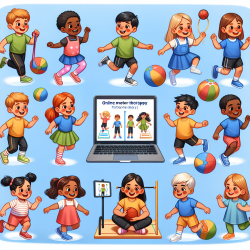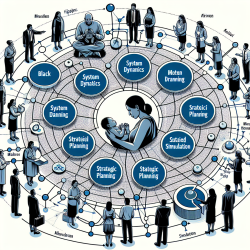The development of gross motor skills in young children is critical for their overall growth and future academic success. The recent study titled "Gross motor skill development of 5-year-old Kindergarten children in Myanmar" provides valuable insights into the gross motor skill development of children in this age group. This blog will discuss how practitioners can implement the outcomes of this research to improve their practice and encourage further research.
The study assessed 472 healthy kindergarten children (237 males, 235 females) using the Test of Gross Motor Development, Second Edition (TGMD-2). The results showed significant differences in gross motor skills based on gender and geographical region. Specifically, males performed better in object control skills, while females showed superior locomotor skills. Additionally, children from rural areas outperformed their urban counterparts in locomotor skills, likely due to more opportunities for physical play in open spaces.
Key Findings and Practical Applications
- Gender Differences: The study found that males generally excelled in object control skills such as striking a stationary ball and overhand throwing. On the other hand, females were better at locomotor skills like galloping. Practitioners should consider these differences when designing activities to ensure they cater to the strengths and weaknesses of both genders.
- Regional Differences: Children from rural areas showed better performance in locomotor skills compared to their urban counterparts. This suggests that providing more opportunities for physical play in urban settings could help bridge this gap. Schools in urban areas might consider incorporating more outdoor activities and play-based learning to enhance motor skill development.
- Assessment Tools: The TGMD-2 is a reliable and valid tool for assessing gross motor skills. Practitioners should use standardized assessment tools like TGMD-2 to identify children who may need additional support and to monitor progress over time.
Encouraging Further Research
The study's findings highlight the need for more comprehensive research on gross motor skill development across different regions and socioeconomic backgrounds. Future studies should include a broader sample from various regions of Myanmar and consider factors such as nutrition, culture, and ethnicity. This will help create a more complete understanding of the factors influencing gross motor skill development in young children.
By implementing the findings from this study, practitioners can create more effective and targeted interventions to support the development of gross motor skills in kindergarten children. These interventions can lead to improved physical, cognitive, and social outcomes for children, setting a strong foundation for their future development.
To read the original research paper, please follow this link: Gross motor skill development of 5-year-old Kindergarten children in Myanmar.










